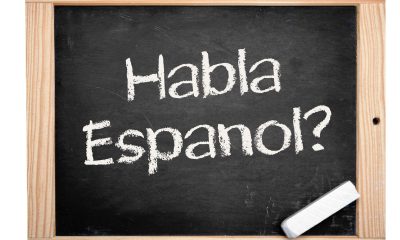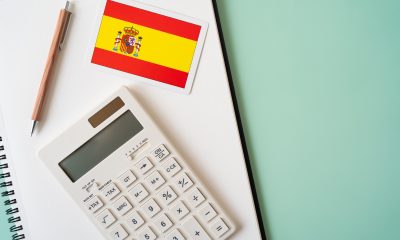Banking & Finances
Mortgage Hipoteca Spain

Getting a mortgage loan (known as “hipoteca” in Spanish) in Spain for purchasing property follows a set of rules and procedures that are similar to those in many other countries.Here are the general steps and rules you should be aware of:
Financial Assessment:
Before applying for a mortgage, it’s important to assess your financial situation and determine how much you can afford to borrow.
Spanish lenders typically look at your income, expenses, credit history, and existing debts to make this assessment.
Choose a Mortgage Provider:
Research various Spanish banks and mortgage providers to find the one that offers the best terms and interest rates.
It’s a good idea to consult with a mortgage broker who can help you compare options.
Property Valuation:
The lender will require a valuation of the property you intend to purchase.
They may arrange for an independent appraisal to determine the property’s value.
Down Payment:
In Spain, the down payment for a mortgage is typically around 20-30% of the property’s purchase price.
The exact amount may vary depending on your financial situation and the lender’s policies.
Interest Rates:
Spain offers both fixed-rate and variable-rate mortgages.
Be sure to understand the terms and conditions of the interest rate you choose.
Variable rates are often based on the Euribor (European Interbank Offered Rate).
Loan Term:
Mortgage terms in Spain can range from 15 to 30 years. The longer the term, the lower your monthly payments will be, but you’ll pay more in interest over the life of the loan.
Documentation:
You’ll need to provide various documents, including proof of income, tax returns, ID or passport, and bank statements.
Non-residents may have different documentation requirements.
Credit Check:
Spanish lenders will perform a credit check to assess your creditworthiness.
Having a good credit history is essential for getting a favorable mortgage offer.
Legal Fees and Taxes:
Be prepared to cover legal fees, property transfer taxes, and other associated costs.
These can vary depending on the region in Spain where you’re buying property.
Mortgage Approval:
Once your application is submitted, the lender will review it and, if approved, provide you with a mortgage offer.
Signing the Mortgage Deed:
In Spain, mortgages are formalized through a notarial deed.
You’ll need to sign this deed in the presence of a notary public.
This is also when you’ll make the down payment and cover associated fees.
Insurance:
Spanish lenders often require you to take out life and property insurance as part of the mortgage agreement.
Repayment:
You’ll need to make monthly mortgage payments, which include both principal and interest.
Automatic bank transfers are a common method for payment.
Early Repayment:
Some mortgages in Spain may have penalties for early repayment, so be sure to understand these terms if you plan to pay off your mortgage ahead of schedule.
Currency Considerations:
If you’re not earning income in euros, be mindful of currency exchange rates, as they can affect your monthly payments.
Remember that mortgage regulations and rules can change over time, so it’s important to consult with a financial advisor or legal expert who is knowledgeable about the current
Spanish mortgage market and regulations before proceeding.
Additionally, the specific rules and requirements may vary depending on the region in Spain where you are buying property.

Banking & Finances
How to handle Spanish tax audits and inspections as a foreigner

Published: August 2025
Navigating the Spanish tax system can be challenging for expats, especially when facing a tax audit or inspection. Understanding your rights, obligations, and the process is key to avoiding stress and costly mistakes. Here’s a practical guide for foreigners in Spain on how to handle tax audits and what to expect if the Spanish tax authorities (Agencia Tributaria) come knocking.
Why you might be audited in Spain
Spanish tax authorities select cases for audit based on random checks, discrepancies in your tax return, high-value transactions, or information from other countries. Common triggers include unreported income, sudden changes in declared assets, or inconsistencies with bank data.
The audit process explained
- Notification: You’ll receive an official letter (“requerimiento”) by post or via your digital mailbox (Agencia Tributaria).
- Document request: You must provide supporting documents (bank statements, contracts, invoices, proof of residence, etc.) within the deadline stated.
- Meeting or inspection: Sometimes you’ll be invited for an interview or an inspector may visit your home or business.
- Resolution: The authorities will issue a decision—either closing the case or making an adjustment (which may include fines or back taxes).
- Appeal: You have the right to appeal decisions through administrative or legal channels.
Key tips for expats facing a tax audit
- Keep all tax-related documents for at least 4-5 years.
- Respond promptly and politely to any official requests.
- Use a registered tax advisor if you’re unsure—many specialize in expat cases.
- Don’t ignore letters from Agencia Tributaria, even if you’re abroad.
- Be honest—deliberate fraud is punished severely in Spain.
Common documents you might need
- Bank statements and account summaries (Spanish and foreign)
- Employment contracts or freelance invoices
- Proof of residency (empadronamiento, rental contracts, utility bills)
- Declarations of overseas assets (Modelo 720)
- Receipts for deductible expens
FAQ: Spanish tax audits and inspections
How will I know if I’m being audited? You’ll receive an official notification by post or digitally from Agencia Tributaria. Do I need to speak Spanish to handle an audit? It helps, but you can use a certified advisor or translator if needed. How long does a tax audit take? Most audits are resolved within a few months, but complex cases can take longer. What happens if I ignore the audit? Ignoring official requests can lead to fines, asset freezes, or legal action. Can I appeal a tax decision? Yes, you have the right to appeal administratively or through the courts. Are foreigners targeted more than locals? Not specifically, but expats with foreign income or assets may get extra scrutiny. What is Modelo 720? It’s a declaration of overseas assets, required for residents with more than €50,000 abroad. Do I need a lawyer for a tax audit? Not always, but complex cases or appeals benefit from professional help. What documents should I keep? All tax returns, bank statements, contracts, and proof of residency for at least 4-5 years. Can I get help in English? Many tax advisors in Spain speak English and are experienced with expat cases.
Disclaimer: This article is for informational purposes only. Always consult a professional for specific tax advice.
Banking & Finances
Updated requirements for opening a bank account in Spain (2025)

Published: August 2025
Opening a bank account is one of the first and most important steps for anyone moving to Spain. Whether you’re relocating for work, study, retirement, or as a digital nomad, having a Spanish bank account makes daily life much easier. In 2025, Spanish banks have introduced new rules and digital processes that affect both residents and non-residents. This comprehensive guide covers everything you need to know about opening a bank account in Spain as a foreigner, including the latest requirements, practical tips, and common pitfalls to avoid.
Why you need a spanish bank account
A local bank account is essential for:
- Receiving your salary or pension
- Paying rent and utility bills
- Setting up internet and mobile phone contracts
- Shopping online or in stores
- Transferring money internationally at lower fees
- Accessing local services and government benefits
Types of bank accounts in spain
- Resident Account: For those officially living in Spain with a registered address (empadronamiento). Offers full access to all banking services.
- Non-Resident Account: For foreigners who spend less than 183 days a year in Spain. Easier to open, but with some limitations (e.g., higher fees, limited credit options).
- Online/Digital Accounts: Many banks now offer 100% online accounts with lower fees, ideal for digital nomads and frequent travelers.
Key requirements in 2025
- Digital Identification: Most banks now require digital ID verification, either via video call or in-branch digital kiosks. Bring your passport, NIE (Foreigner Identification Number), and proof of address.
- Proof of Address: Recent utility bill, rental contract, or empadronamiento certificate.
- Proof of Income/Employment: Especially for non-resident accounts or if you want credit facilities. This can be a work contract, payslips, or bank statements.
- Tax Identification Number: Some banks will ask for your home country’s tax number for compliance.
- Initial Deposit: Some banks require a small deposit to activate the account (typically €50–€300).
- Enhanced Anti-Money Laundering Checks: Be prepared to answer questions about the source of your funds and the intended use of the account.
How to open a bank account: Step-by-step
- Choose the right bank:
- Major banks include Santander, BBVA, CaixaBank, Sabadell, and Bankinter. Many offer services in English and have international branches.
- Compare fees, online banking options, and English-language support.
- Gather your documents:
- Passport (and visa if applicable)
- NIE (if you have one)
- Proof of address in Spain
- Proof of income or employment (if required)
- Tax identification number from your home country
- Apply online or in person:
- Many banks now allow you to start the process online. You may need to visit a branch to complete ID verification.
- If you’re not fluent in Spanish, ask for an English-speaking advisor or bring a friend/translator.
- Complete digital verification:
- Follow the bank’s instructions for video verification or digital signature.
- Upload or present your documents as requested.
- Activate your account:
- Once approved, you’ll receive your account details and debit card. Set up online banking and download the bank’s app for easy access.
Common pitfalls and how to avoid them
- Not having all documents ready – double-check requirements before your appointment.
- Language barriers – use banks with English-speaking staff or digital onboarding in English.
- Choosing an account with high fees – always read the fee schedule and ask about hidden charges.
- Not updating your address or residency status if you move within Spain.
- Assuming you can use your home country’s debit/credit card for everything – many services require a Spanish IBAN.
Tips for expats and digital nomads
- Consider online banks (Revolut, N26, Wise) for easy setup and low fees, especially if you travel often.
- Open your account as soon as possible after arriving – you’ll need it for most contracts and official paperwork.
- Keep digital copies of all documents and correspondence with your bank.
- Ask about multi-currency accounts if you receive income in other currencies.
- Be patient – Spanish bureaucracy can be slow, but digital processes are improving.
FAQ
Frequently Asked Questions – Opening a Bank Account in Spain
Disclaimer: This article is for informational purposes only and does not constitute financial or legal advice. Always confirm requirements with your chosen bank.
Banking & Finances
Tax changes for foreign property owners in Spain (2025)

Published: August 2025
If you own property in Spain as a foreign resident, 2025 brings several important tax changes you need to be aware of. These updates affect both EU and non-EU citizens and are aimed at increasing transparency and compliance.
Key Tax updates for 2025
- Increased Non-Resident Income Tax: The non-resident tax rate on rental income has increased from 19% to 21% for EU citizens and from 24% to 26% for non-EU citizens.
- Mandatory Digital Tax Filing: All property owners must now file their Spanish property taxes digitally via the official tax portal, regardless of residency status.
- Stricter Penalties for Late Payment: Late tax payments now incur higher penalties and interest rates. Timely filing is more important than ever.
- New Reporting Requirements: Foreign owners must declare all rental income, even if paid outside Spain. Failure to report can result in significant fines.
- Property Value Reassessment: The Spanish tax authorities are reassessing property values in 2025, which may affect your annual property tax bill (IBI).
What should foreign owners do?
- Consult a qualified tax advisor familiar with Spanish law and international property ownership.
- Register for digital tax filing if you haven’t already.
- Keep detailed records of all rental income and expenses.
- Pay attention to deadlines for tax declarations to avoid penalties.
Useful links
Disclaimer: This article is for informational purposes only and does not constitute legal or tax advice. Always consult a professional for your specific situation.

































































